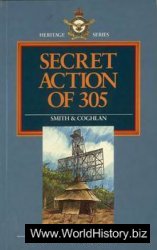Pope Clement V was stunned when, on 14 October, a messenger brought the news to his court at Poitiers that the Templars had been arrested the previous day. Though the action had been taken on the nominal authority of the French Inquisitor, there was no doubt that the arrests represented an attack on the Papacy and the Catholic Church by the secular monarchy of France. The matter concerned not the Templars only; the survival of the Papacy was at stake, and Clement immediately summoned all his cardinals for an emergency meeting of the Curia which began on 16 October and lasted three days.
Another Pope at another time might have excommunicated Philip. But Clement was doubly vulnerable-after Philip’s coup against Boniface in Italy, and as a resident on French soil. Instead Clement issued a bull. Ad Preclarus Sapientie, which gave Philip a way out: it said that the king had acted unlawfully and had tarnished the reputation of his grandfather Saint Louis, but he could make up for his rashness by handing the Templars and their possessions over to the Church. To achieve this, in November the Pope sent two cardinals to Paris to take into custody the men and property of the Temple. But the king had made himself absent and his counsellors refused access to the Templars, let alone handing them over to the Church, arguing that a Papal Intervention was superfluous as they were self-confessed heretics.
When the cardinals went back to Peltiers with the news that the French monarchy was flatly refusing to obey an express command of the Pope, the Curia was plunged Into crisis. According to one report, ten cardinals threatened to resign If the Pope showed himself to be a puppet of the French king. Clement was faced with replacing the cardinals at the cost of causing a schism In the Church, or he could excommunicate Philip and fall victim to a royal coup.
But the Pope found another way and, acting with some dexterity within the difficult constraints of his situation, he did what he could to put himself In charge of events. First on 22 November 1307 he Issued a bull, Pasfora/;s Praeeminentiae, asking all the kings and princes of Christendom to arrest the Templars In their lands and to hold their property In safekeeping for the Church. In this way proceedings were Initiated against the Templars In England, Iberia, Germany, Italy and Cyprus-but In the name of the Church. By doing this the Pope was delivering an Implied ultimatum to King Philip, that what was true In the rest of Europe must also be so In France. He praised the French king for his good faith and religious zeal, but Clement was making It clear that the case against the Templars was being removed from the king’s authority and was now being taken Into the hands of the Papacy.
As for the crisis that had arisen when the king’s officials rebuffed the two cardinals, the Pope simply pretended that the incident had never happened. Instead in December he sent the two cardinals back to Paris as if for the first time. But now they brought with them the power, granted by the Pope, to excommunicate Philip on the spot and to place the whole of France under an interdict if the king persisted in his refusal to hand over the Templars. The move was effective: on 24 December 1307 Philip wrote to the Pope that he would hand over the Templars.
On about 27 December 1307 the cardinals met James of Molay and other leading Templars, who denied everything to which they had formerly confessed. According to one source the Grand Master said that he had confessed only under heavy torture, and he showed the wounds on his body, though it is not clear if this source can be trusted. Nevertheless, retracting the confessions was a risky move because under the rules of the Inquisition relapsed heretics were handed over to the secular authorities to be burnt. That the Grand Master and others took that risk shows that they were confident that a great injustice was about to be overturned. Certainly James of Molars retraction marked a turning point in the trial.




 World History
World History









